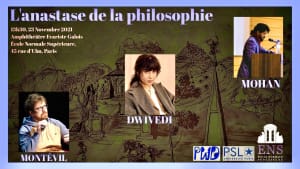
Le défi épistémologique de l’intégration entre la systématique et le reste de la biologie
La systématique donne, de fait, le système de référence de la biologie permettant de désigner ses objets, mais cet état de fait manque d'une intégration conceptuelle, épistémologique et méthodologique. Des domaines comme la génétique des population, l'écologie théorique, la biologie moléculaire ou la biologie des systèmes, en effet, s'appuient sur les relations causales synchroniques chez les être vivants. Ceci est particulièrement clair lorsque l'on considère leurs modèles mathématiques, largement hérités de la physique pour ce qui est de leurs structures et de leurs épistémologies. Surmonter cet obstacle épistémologique suppose de repenser le cadre théorique de la biologie comme un cadre épistémologiquement hybride, entre cadre historique et cadre relationnelle et synchronique, et de développer une écriture théorique et des méthodes adaptées.










